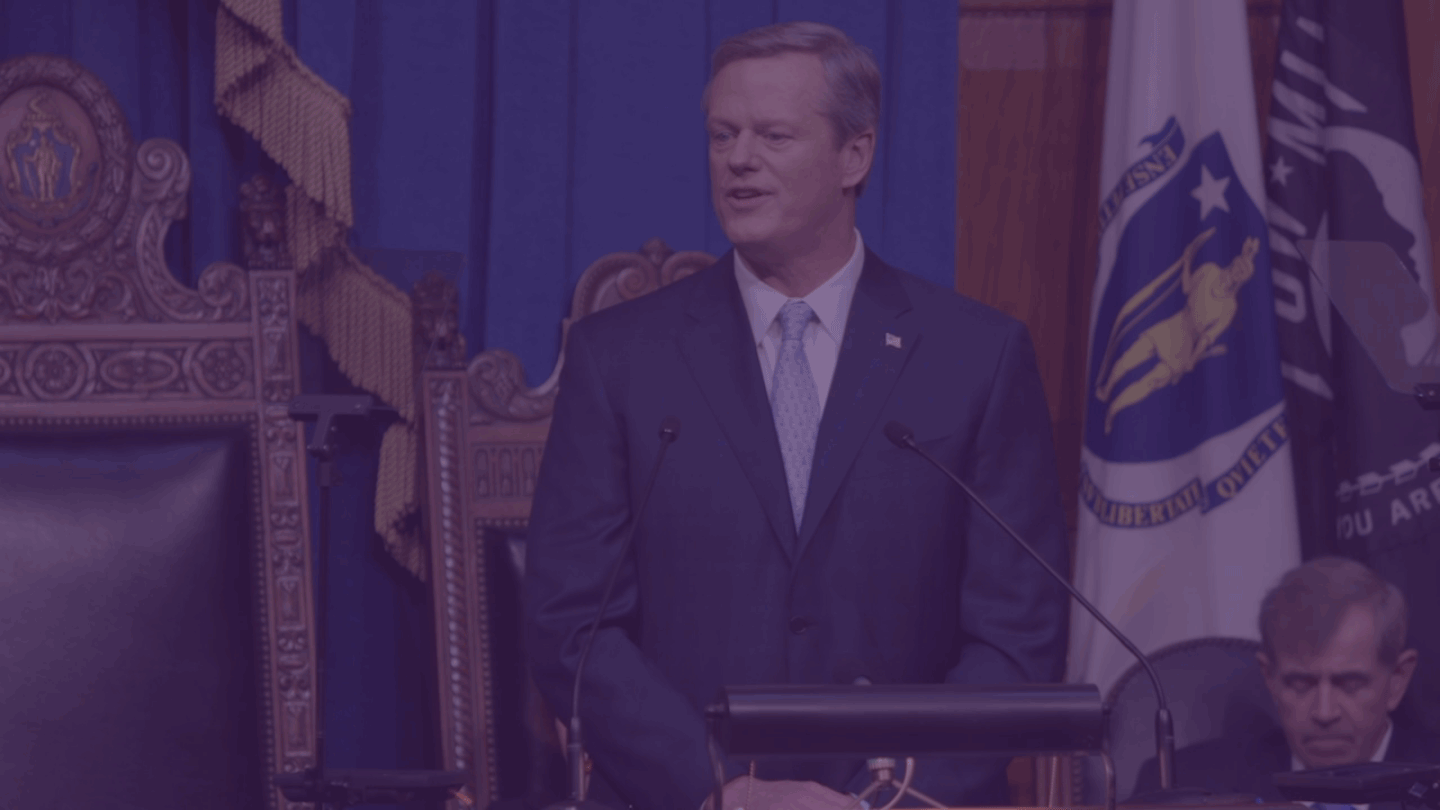Originally published in WBUR’s Edify.
Photo: Governor Charlie Baker delivers the State of the Commonwealth.
Helping needy community college students was the big higher education highlight in Governor Charlie Baker’s State of the Commonwealth speech on Tuesday. But Massachusetts families still need a bold agenda to help with crushing student debt burdens and to make public colleges and universities truly affordable.
Baker is proposing some modest increases in his budget, including an additional $7 million in state scholarship funds to cover tuition and fee costs for community college students who qualify for Pell Grants. This meets an urgent request, and we support any help for struggling students.
Two other proposals would expand early college programs and expand his signature program that helps students transfer from community colleges to four-year schools to save on tuition. While these ideas may reduce costs in the short-term, we risk pushing students from working families into shorter educations and fewer years in college just because their families can’t afford a “full” education.
The big takeaway? This budget doesn’t invest significant new funding in public colleges. Our preliminary analysis shows that UMass, state universities and community colleges go underfunded by over $60 million this year alone, and current higher education funding is 40 percent below what we spent in 2001 after adjusting for inflation and the large increase in enrollment.
You read that right. We’ve cut our higher education budget by almost half at a time when people need a college education the most.
Committing to debt-free public college is a major and necessary first step towards a long-term solution. And we can make real progress towards debt-free college with hundreds of millions in new funds if voters approve the Fair Share Tax Amendment, also known as the “Millionaire’s Tax,” in November.
In his speech, Baker said the people of Massachusetts want “opportunity, possibility and hope.”
Millions of students and graduates have found opportunity and possibility at our public colleges and universities. But as costs rise and debt becomes unbearable, people lose hope.
The success of our state depends on highly-educated citizens. We put that future success in doubt when our neighbors are paying off student debt for decades and working class people can’t go to a public college because it’s too expensive.
Students and families want a debt-free future. But for now, far too many will keep skipping meals and working four jobs just to get a public education.

